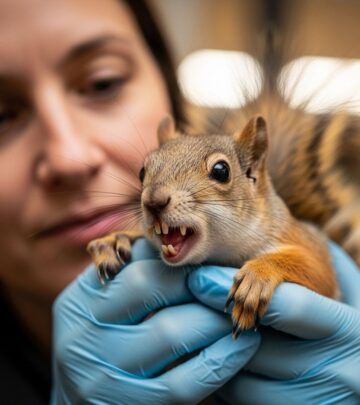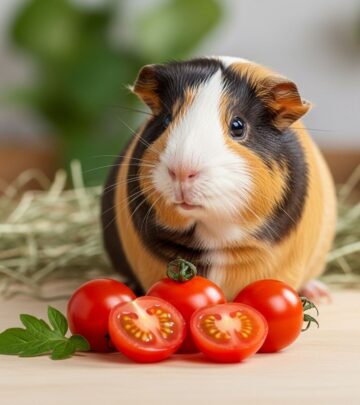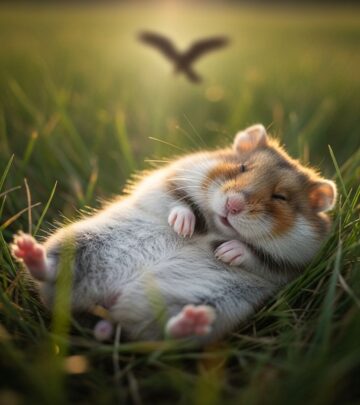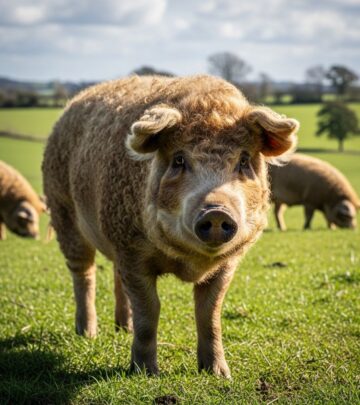Lionhead Rabbit Care: 7 Essential Tips For Happy Pets
Uncover the delightful world of Lionhead rabbits, from their trademark manes and curious personalities to essential care tips for a thriving, happy companion.
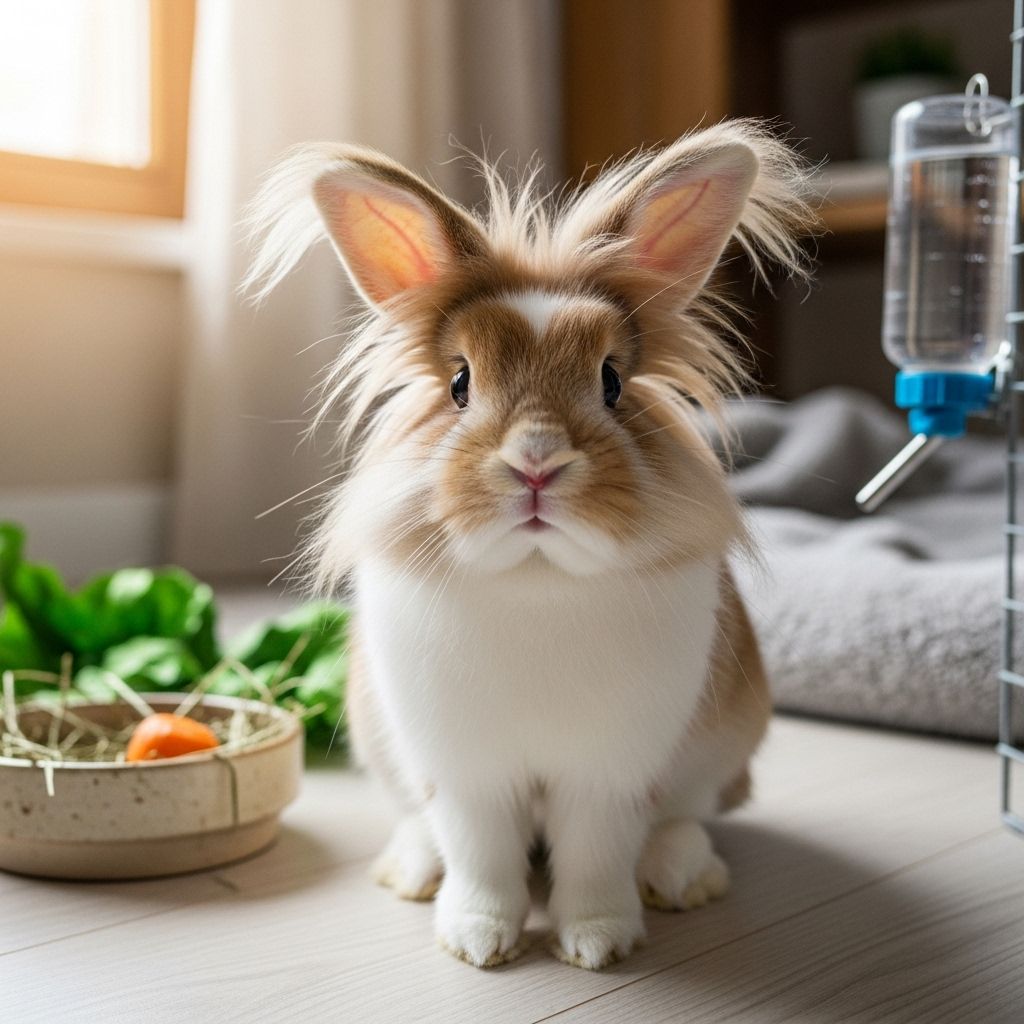
Image: HearthJunction Design Team
Lionhead Rabbit Breed Overview
The Lionhead rabbit stands out as one of the most enchanting and unique breeds of domestic rabbits, captivating enthusiasts with its distinctive mane and endearing personality. Whether you are new to rabbits or an experienced owner seeking to deepen your knowledge, the Lionhead rabbit promises a delightful companionship—provided its unique needs are understood and respected.
History and Breed Origins
The Lionhead rabbit is a relatively new addition to the world of domestic rabbit breeds. Its origins trace back to Belgium, where breeders sought to combine the Swiss Fox rabbit with the Netherland Dwarf. The goal was to develop a long-coated dwarf rabbit, but the result was a genetic mutation manifesting as a signature woolly mane encircling the head and sometimes the flanks. This unique feature soon captivated breeders and pet owners alike.
Recognition for the Lionhead breed came gradually:
- 2002: Recognized as an official breed in the United Kingdom.
- 2014: Officially accepted by the American Rabbit Breeders Association, reflecting its rising popularity and stable breed standards.
Today, Lionheads are celebrated for their lively personalities and show-quality appearance across the globe.
Physical Characteristics
The Lionhead rabbit is best known for its thick, woolly mane reminiscent of a lion’s, but its appeal extends beyond its fur. Here are the main features:
| Characteristic | Description |
|---|---|
| Size | Small to medium, usually weighing 2.5–3.5 lbs (around 1.2–1.6 kg). |
| Body | Compact, well-rounded with a small head and short, upright ears (about 2–3 inches long). |
| Coat | Soft, medium-length fur; distinctive long mane around the head, which may extend along the flanks and haunches in double-maned varieties |
| Colors | Wide variety, including black, blue, lilac, chestnut, and more |
| Manes | Single or double-maned, based on genetic inheritance. |
The mane is this breed’s signature: single-maned Lionheads develop a modest collar of longer fur, often diminishing after the first year, while double-maned Lionheads display a full, fluffy mane and additional long fur on their flanks and hips throughout their lives.
Personality and Temperament
Lionhead rabbits are celebrated for their charming and inquisitive natures. Many owners describe their Lionheads as affectionate and gentle, forming strong bonds with humans and even other rabbits. Some key traits include:
- Friendly and Curious: They enjoy exploring their environment and interacting with family members.
- Intelligent: Highly trainable, they can learn tricks and use a litter box.
- Sensitive: Prone to frighten easily, especially in noisy or chaotic households. A calm, patient environment helps them feel secure.
- Playful and Active: They require daily enrichment, exercise, and mental stimulation to prevent boredom or destructive behavior.
Due to their small size and delicate nature, Lionheads are best suited for adults, children over the age of 8, or families who can supervise gentle handling. They thrive with regular interaction, making them ideal for owners willing to invest time in socialization and bonding.
Grooming Needs
The Lionhead’s beautiful mane and soft fur require consistent grooming to maintain their health and appearance. Without regular care, their fur can easily mat and collect debris.
- Brushing: Brush 2–3 times per week under normal circumstances; more often (potentially daily) during shedding seasons to remove loose fur and prevent mats.
- Shedding: Lionheads typically shed more in spring and fall, requiring heightened grooming vigilance.
- Mat Prevention: Pay special attention to the neck, flanks, and hindquarters in double-maned individuals where fur is thickest.
- Trimming: If mats develop, carefully trim them with blunt-tipped scissors or consult a professional groomer experienced with rabbits.
In addition, routine grooming provides an opportunity to check for skin problems, parasites, or injuries.
Habitat and Housing
Lionhead rabbits may be small, but they require spacious, stimulating environments to thrive. Appropriate housing is crucial for their health and happiness.
- Enclosure Size: Provide at least 4–6 times the rabbit’s body length as minimum floor space. Indoor pens or large rabbit hutches work well.
- Free Roaming: Supervised free-roaming time in rabbit-proofed rooms is ideal for daily exercise and stimulation.
- Bedding: Use safe, absorbent bedding such as paper-based or aspen shavings. Avoid cedar or pine, which can irritate sensitive respiratory tracts.
- Temperature: Maintain a moderate climate between 50–75°F (10–24°C). Lionheads are susceptible to extreme heat or cold due to their dense coats.
- Toys and Enrichment: Provide a variety of rabbit-safe toys, tunnels, and chewables for mental stimulation.
- Litter Box: Lionheads can be litter-trained; place boxes in their enclosure and clean frequently.
Outdoor housing is not recommended unless protected from predators, extreme temperatures, and moisture. Always ensure the enclosure is secure and escape-proof.
Diet and Nutrition
A balanced, species-appropriate diet keeps Lionhead rabbits healthy and full of energy. Their digestive systems are delicate and require:
- Hay: Unlimited high-quality hay (timothy, orchard grass, or meadow hay) forms 80–90% of the diet, supporting dental and digestive health.
- Fresh Greens: Offer a rotating selection of leafy greens such as romaine lettuce, cilantro, parsley, and dandelion greens. Introduce new greens gradually to avoid digestive upset.
- Pellets: Provide a small daily quantity of high-fiber, plain rabbit pellets (about 1/8 cup per 2 lbs of body weight). Avoid muesli-style mixes with seeds and dried fruit.
- Fresh Water: Supply clean, fresh water at all times, ideally in a heavy ceramic bowl or a bottle.
- Treats: Limit fruit and commercial rabbit treats to occasional, small quantities due to high sugar content.
Avoid foods such as iceberg lettuce, avocado, potatoes, chocolate, and any toxic houseplants, as these can harm rabbits.
Exercise and Socialization
Lionhead rabbits are energetic and benefit from daily exercise outside their cage. Regular movement supports healthy bones, mental stimulation, and weight management.
- Daily Play: Allow at least 1–2 hours of supervised playtime in a rabbit-safe area.
- Enrichment: Rotate different toys, tunnels, and cardboard boxes to encourage exploration and natural behaviors.
- Bonding: Lionheads are social creatures—consider adopting a bonded pair if possible, or ensure you spend plenty of time with a single rabbit to prevent loneliness.
Health and Lifespan
Lionhead rabbits are generally healthy, robust pets when provided with proper care. Their typical lifespan ranges from 7 to 10 years, with some reaching even older with excellent husbandry.
Potential health concerns include:
- Dental Disease: Their teeth grow continuously and require regular wear via hay and chew toys to prevent overgrowth.
- Gastrointestinal Stasis: A potentially life-threatening condition where the digestive system slows or stops, often linked to insufficient fiber or stress.
- Fur Mats: Particularly in double-maned Lionheads, mats can harbor bacteria or cause skin issues if not properly managed.
- Flystrike: Outdoor rabbits, or those with soiled fur, are at higher risk of this serious condition caused by flies laying eggs in dirty fur.
- Respiratory Issues: Avoid dusty bedding and protect from drafts.
Annual veterinary checkups, a proper diet, daily observation, and good hygiene significantly reduce health risks.
Are Lionhead Rabbits Right for You?
Lionhead rabbits are a wonderful choice for many homes, but they are not ideal for everyone. Their grooming needs are higher than short-haired breeds, and their sensitive, active personalities demand time and attention. Consider a Lionhead if you:
- Have time for daily interaction and grooming.
- Can provide a calm, stable household.
- Are able to rabbit-proof living spaces and offer enrichment.
- Understand gentle bunny handling and social needs.
They are ideal for thoughtful children, adults, and families eager for an engaging, long-lived companion.
Frequently Asked Questions (FAQs)
Q: How big do Lionhead rabbits get?
A: Lionhead rabbits are generally small, with adult weights ranging from 2.5–3.5 lbs (1.2–1.6 kg). They have compact, rounded bodies and short ears.
Q: What is the difference between a single-maned and a double-maned Lionhead?
A: Single-maned Lionheads have a lighter mane mainly around the head and ears, often thinning with age. Double-maned Lionheads have a pronounced, dense mane that typically extends down the flanks and maintains fullness for life.
Q: Are Lionhead rabbits good pets for children?
A: Lionhead rabbits can make excellent pets for older, gentle children and adults. Their delicate nature means very young or unsupervised children may not be ideal companions.
Q: How often should I groom my Lionhead rabbit?
A: Brush your Lionhead at least 2–3 times a week, increasing to daily during shedding seasons to prevent mats and keep the coat healthy.
Q: Can Lionhead rabbits live outside?
A: While it’s possible for Lionheads to live outside in secure, weather-protected hutches, they are sensitive to temperature extremes and predators. Indoor housing is generally safer and allows more bonding time.
Q: What is the average lifespan of a Lionhead rabbit?
A: With proper care, Lionhead rabbits typically live between 7 and 10 years.
Quick Care Checklist
- Brush fur 2–3 times weekly (more when shedding).
- Provide unlimited hay and fresh water daily.
- Offer a variety of safe greens, with measured pellets.
- Ensure a spacious, enriched enclosure and time for free play.
- Monitor health, teeth, and weight regularly.
- Maintain a calm, safe environment to reduce stress.
- Schedule annual vet visits and promptly treat health issues.
Conclusion
Lionhead rabbits are among the most visually striking and engaging rabbit breeds, combining beauty and brains with a playful, affectionate temperament. For those willing to invest in their grooming and social needs, Lionheads can offer years of joy, companionship, and delightful antics. With the right home, these rabbits truly become part of the family, embodying the very best of lap pets and small animal companions.
References
- https://www.petmd.com/rabbit/slideshows/5-most-popular-rabbit-breeds
- https://everbreed.com/blog/the-ultimate-guide-to-lionhead-rabbits/
- https://www.themillstores.com/blogs/pet-blog/march-breed-of-the-month-lionhead-rabbit
- https://www.petplan.co.uk/pet-information/rabbit/breed/lionhead/
- https://thewiegands.com/2021/06/lionhead-bunny.html
Read full bio of Shinta








